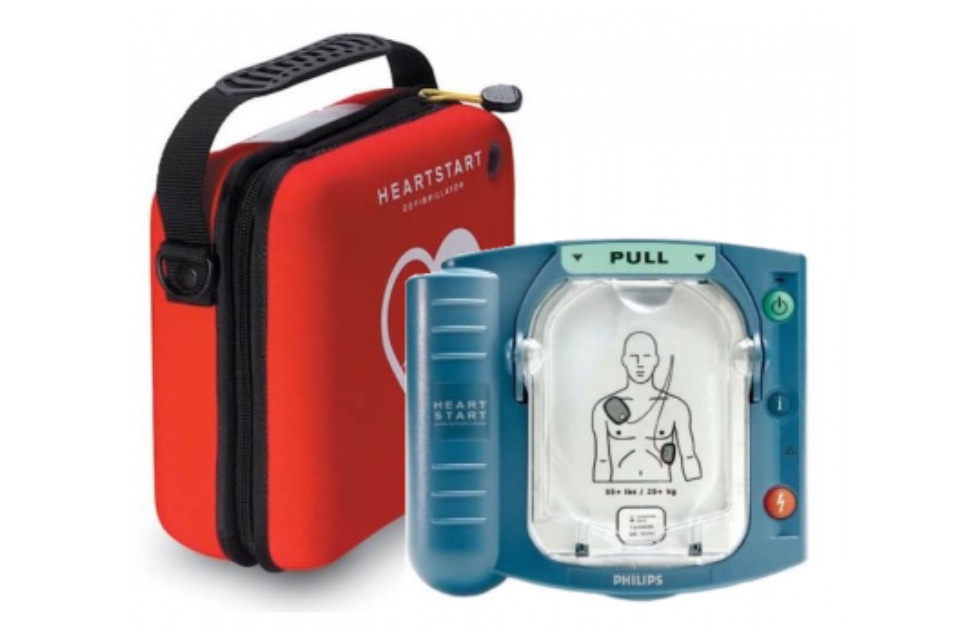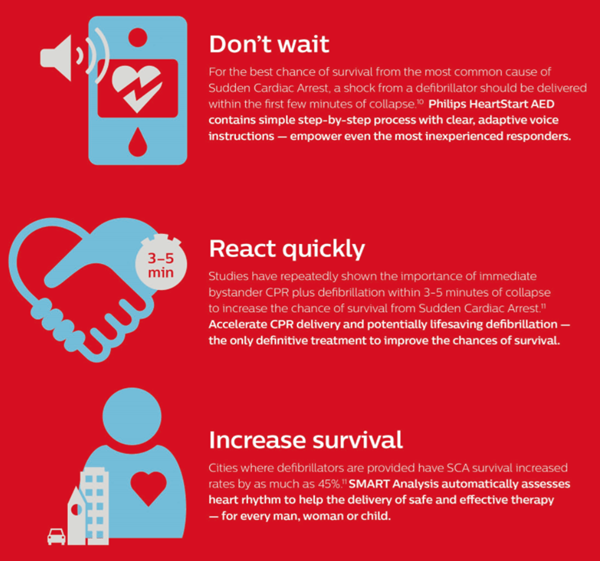Danish football player Christian Eriksen suffered a cardiac arrest during the Denmark vs Finland game at this year’s Euros tournament. Part of the lifesaving emergency action that saved the footballers’ life included the use of a defibrillator.
Following this awful incident, business essentials service provider Direct365 has seen enquires for defibrillators triple as business owners question whether they should have a defibrillator available at their business. So, what are the legalities around defibrillators in the workplace?
Your business responsibility and defibrillators
Currently, in the UK, it isn’t a legal requirement for workplaces to provide a defibrillator however, legislation change has been considered in recent years to make defibrillators mandatory. It is thought to be only a matter of time until UK businesses will be legally expected to create a radius of defibrillator availability.
In cases of sudden cardiac arrest, death occurs within minutes if the victim doesn’t receive treatment. 70-80% of sudden cardiac arrests occur outside the hospital, which highlights the need for easily accessible defibrillators in as many locations as possible, including the workplace.
For every minute that passes without CPR or defibrillation, the chance of survival decreases by 7-10%. With bystander intervention and treatment with a defibrillator, the chance of survival triples.
Ethical expectations weigh heavy on businesses when it comes to defibrillator availability. Business owners must consider their Duty of Care, their ability to instill trust in staff and visitors and the possibility of sudden cardiac arrest striking themselves or someone in the workplace.
If a business is in a position where they can stock a defibrillator then they can help save a life.
Using defibrillators
Defibrillators aren’t exclusive to trained personnel, they’re designed for anybody to use. Most victims will die if not treated within minutes; this is why defibrillators are made to be safe, efficient and user-friendly. These devices only shock when a victim needs to be shocked, so taking action can only help rather than pose further harm.
Save a life with quick action: contact emergency services, perform CPR and use the nearest defibrillator.
Placement of defibrillators
Once a business has taken the decision to purchase a defibrillator, they then will need to consider, where is the best place to store it?
Accessibility is key. It’s important to keep Defibrillators in plain sight so that anyone who needs to use it can find it quickly.
If a business doesn’t have any indoor facilities that’s not a problem. Defibrillators can be safely mounted in specially designed security boxes. AED cabinets with alarms deter from theft and damage to ensure that the device is only ever used in emergencies.
Secure cabinets are great for open areas that may not always be manned but still have high numbers of people around, including parks and public transport stations.
More information on defibrillators are available to view here.
















